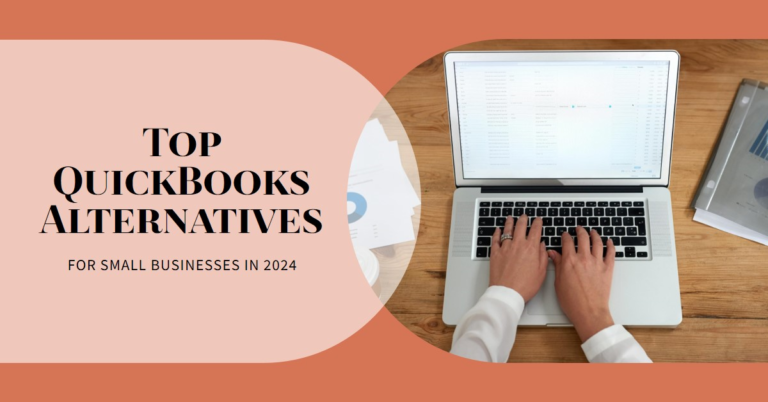Key Points:
1. Outsource Accounts Receivable Services for Manufacturing allows companies to focus on core tasks like production while experts handle billing, collections, and reporting.
2. It improves cash flow through faster collections, reduces overhead costs, and provides flexibility to scale with demand cycles.
3. Outsourced partners offer centralized fraud monitoring, regulatory compliance support, and detailed reporting, helping manufacturers gain actionable insights and minimize risk.
4. Selecting the right partner requires evaluating their expertise, security measures, technology, and customer references to ensure a seamless transition and optimal results.
Outsource Accounts Receivable Services for Manufacturing sector have become an increasingly popular, as they look to streamline operations while focusing on core competencies.
By partnering with an external provider, companies can gain billing, collections, and reporting efficiencies while reducing overhead costs.
This article will explore how Outsource Accounts Receivable Services for Manufacturing can benefit manufacturers of all sizes and how to select the right partner to meet individual business needs.
Why is Outsourcing Accounts Receivable Important for Manufacturing?

For manufacturing companies, overseeing accounts receivables can be time-consuming and take valuable resources away from production activities.
Outsourcing allows manufacturers to free up staff to focus on designing, building, and shipping goods.
Outsourcing receivables also allows companies to gain expertise without hiring additional finance professionals. Accounts receivable specialists can efficiently manage collections due to dedicated focus and experience with best practices.
How to Select the Right Partner to Meet Specific Requirements
Choosing the right partner is critical for success. Manufacturers should consider the size and scope of operations, industries served, specialization in specific processes like billing or collections, technology platforms, security and data safeguards, reporting functions, implementation timeframes, and expected key performance metrics.
Customer references can provide insight into service quality. A streamlined implementation ensures a smooth transition with minimal business disruption.
Services Come Under Outsource Accounts Receivable Services for Manufacturing
- Generation of sales invoices
- Based on timesheet
- Based on sales orders
- Based on purchase orders
- Based on contracts
- Receipting/Cash application services
- Applying cash receipts to open invoices properly
- Reconciling sales booked through POS (Point of Sale) systems/online stores with the accounting system
- Ageing of receivables and receivables tracking
- Tracking ageing buckets like current, 1-30 days, 31-60 days, etc.
- Sales order processing Services
- Processing sales orders received from customers efficiently
- Voice and email-based Collection support
- Timely follow-ups for unpaid invoices over the phone and email
- Customer ledge maintenance
- Maintaining up-to-date customer records with contact details
- Customer profitability analysis
- Identifying the most profitable customers through proper cost and revenue allocations
Benefits of Outsourcing Accounts Receivable Services for Manufacturing

There are some crucial benefits of Outsourcing Accounts Receivable Services for Manufacturing listed below:
Outsourcing Gives Flexibility and Reduces Costs
When receivables are handled externally, companies gain flexibility with variable or seasonal demand cycles. They can easily scale up or down outsourced services as needed without extra payroll.
Large fixed costs are converted to more predictable operating expenses. Manufacturers avoid technology and software costs by utilizing a provider’s systems. Outsourcing reduces the costs of managing receivables while maintaining high service levels, which is important for positive customer relationships.
Increased Collection Rate and Improved Cash Flow
When receivables are managed by an outsourced partner focused solely on collections, payment follow-ups are conducted more rigorously.
Specialized collectors employ customized strategies tailored to individual customers or industries. Their expertise and technologies allow them to resolve payment delays quickly.
This results in an increased collection rate and a speedier cash conversion cycle. Faster collections improve manufacturers’ cash flow and provide more working capital to fuel production expansion.
Centralized Fraud and Risk Monitoring
Outsourcing consolidates billing and collections activities to a single centralized location. This allows providers to apply centralized controls and monitor accounts holistically for patterns of delinquency, payment disputes, or potential fraud across client portfolios. Central systems flag anomalies quickly.
Outsourced partners have the resources to perform identity and credit checks during customer onboarding to minimize future risks. Their fraud detection tools and processes strengthen client protection.
Consolidated Reporting and Data Analytics
Outsourcing companies gain deeper data pools by aggregating accounts receivable data from multiple manufacturing clients. Leveraging these, they provide extensive reporting on metrics like DSO, collection trends, account ageing, and collectors’ performance.
Partners also conduct analytics on anonymized cross-client information to identify industry or regional risks. Manufacturers gain actionable insights beyond the view from their accounts. Reporting enhances visibility and supports strategic decision-making.
Simplified Account Management
Managing billing, collections, and reconciliations for each customer account divides the manufacturer’s focus and resources.
Outsourcing consolidates these processes under single points of contact at the provider’s end, who are dedicated to servicing those accounts end-to-end. This simplifies interactions for manufacturers. It streamlines the entry of sales orders, tracks invoices and payments, and resolves disputes in one place. Manufacturers deal with fewer counterparties for simplified account management.
Regulatory Compliance Assistance
Receivables processes involve regulatory aspects like sales tax reporting, withholding taxes, and information reporting requirements that differ globally and across industries and products. Keeping abreast of updates strains manufacturer resources.
Outsourced partners, especially large ones, dedicate teams to monitor compliance changes and best practices. Knowing local laws deeply ensures client processes and systems adapt quickly without manufacturer involvement. This protects manufacturers from non-compliance risks and audits.
Controlled Ongoing Cost Visibility
Rather than maintaining in-house resources and systems, manufacturers switching to outsourcing receivables gain predictable operating expenditures with clearly defined service level commitments. Lower costs provide budgetary confidence.
They stay insulated from expense fluctuations due to volume changes without extra hiring. Service agreements ensure continuous evaluation of provider performance against benchmarks and costs. Outsourcing brings better oversight of long-term spending than potentially increasing in-house receivables management costs.
Conclusion
Outsourcing accounts receivable services for manufacturing provides manufacturers with increased efficiency, flexibility, and cost reductions compared to maintaining the internal function.
Companies can optimize accounts receivable management by selecting a specialized Accounting outsourcing partner and collaborating to understand exact business needs while focusing on core objectives. With the right provider, outsourcing receivables offers scalability and financial benefits without compromising service levels.
Frequently Asked Questions (FAQs)
Q.1: Can you outsource accounts receivable?
Ans 1: A company that outsources some or all of its accounts receivable tasks to a third-party vendor or partner is outsourcing accounts receivable.
Q.2: What is an example of outsourcing manufacturing?
Ans 2: When Apple finishes creating a product, it outsources the manufacture to China for mass production. Fashion brands like Zara and H&M hire Bangladeshi factories to make their goods globally.
Q.3: What are the GAAP rules for accounts receivable?
Ans 3: The company’s accounts receivable balance must be reported at “net realizable value” according to US GAAP. This implies that the accounts receivable balance displayed in the company’s financial statements must be equivalent to the amount of cash they expect to recover from customers.
Q.4: What are the three types of accounts receivable?
Ans 4: There are three categories for receivables: notes receivable, accounts/trade receivable, and other receivables.
Q.5: What category are accounts receivable in?
Ans 5: Your balance sheet or general ledger will show your accounts receivable balance under the “current assets” section. Since accounts receivable add value to your business, they are considered as assets.
Also Read:




